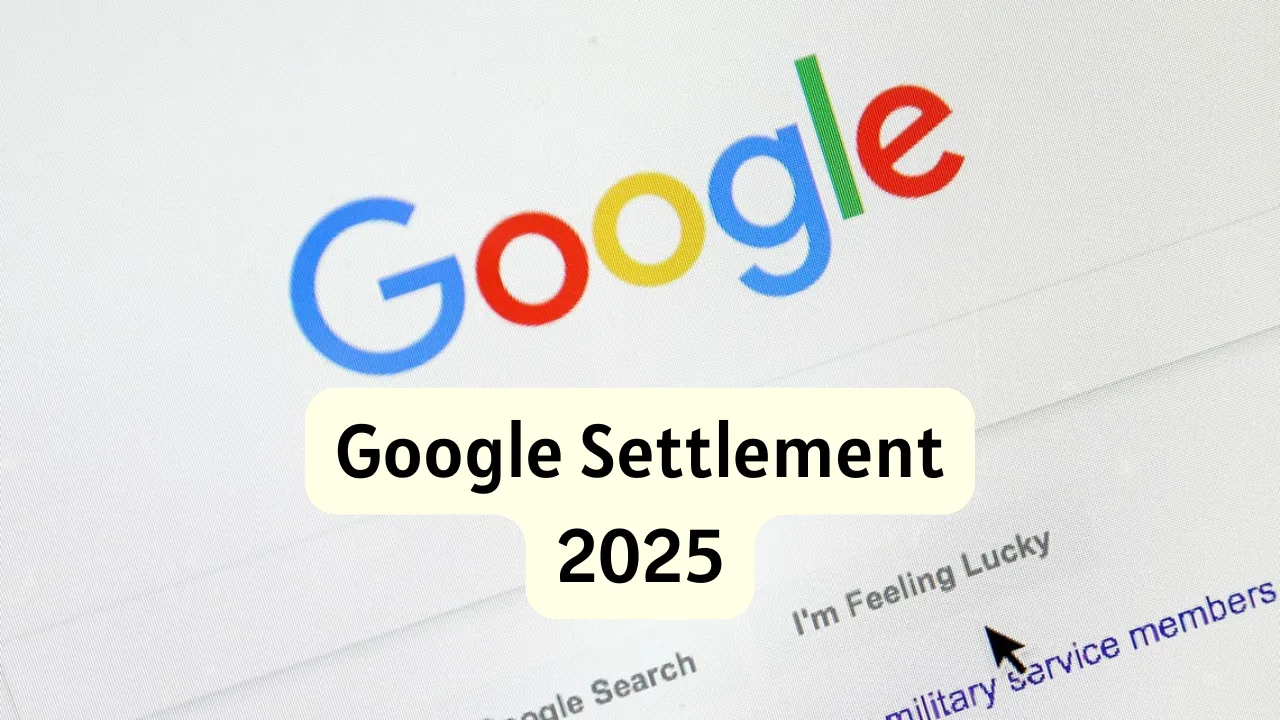Google Settlement 2025: Google has reached a landmark agreement to settle a major privacy lawsuit, promising to pay a massive $1.375 billion to the state of Texas. The settlement follows multiple accusations that the tech giant violated the privacy of millions of users by secretly tracking their movements, collecting biometric data, and misleading users about their browsing privacy. The announcement was made by Texas Attorney General Ken Paxton on May 9, 2025.
The Google Settlement 2025 comes after years of legal scrutiny over how the company handled user data through its Location History settings, Chrome’s Incognito Mode, and biometric data tools. Many Texans are now asking how this settlement affects them, who is eligible, and how they can file a claim. This article explains all of that, including the background of the lawsuit and what users can expect next.
Google Settlement 2025
The Google Settlement 2025 is one of the largest state-level privacy settlements in U.S. history. It stems from lawsuits filed in 2022 by Texas Attorney General Ken Paxton, who accused Google of misusing sensitive user data in violation of state consumer protection laws. According to the lawsuit, Google collected and stored users’ voiceprints, facial geometry, and precise locations—often without clear consent or disclosure.
Key features involved in the lawsuit include Google Location History, Chrome’s Incognito Mode, and biometric data collection through Android and other platforms. While Google has denied any wrongdoing, it agreed to the settlement to put an end to litigation, noting that the issues in question were based on “outdated practices” that have since been corrected.
Overview Table: Google Settlement 2025 Key Information
| Category | Details |
| Settlement Amount | $1.375 billion |
| Announced By | Texas Attorney General Ken Paxton |
| Date of Announcement | May 9, 2025 |
| Legal Claims | Unauthorized tracking of location, voiceprints, facial data |
| Features Involved | Location History, Chrome Incognito, Biometric Data Collection |
| Eligible Claimants | Texas residents affected by the data practices |
| How to File a Claim | Details expected from the Attorney General’s office |
| What Google Said | Denied wrongdoing; cited resolved and outdated practices |
| Settlement Usage | Undisclosed—potentially for consumer protection initiatives |
| Comparison | Similar to Meta’s $1.4B privacy settlement in Texas |
What Led to the Settlement?
In 2022, the Texas Attorney General’s office filed two lawsuits against Google, alleging the tech company had engaged in deceptive practices that violated Texas’ consumer protection laws. The allegations focused on three core issues:
- Location Tracking: Google was accused of collecting users’ locations even when they had turned off Location History, misleading them about the level of control they had over their privacy.
- Incognito Mode Misrepresentation: Chrome’s Incognito Mode was advertised as private browsing, but the lawsuit claimed Google continued collecting user data during these sessions.
- Biometric Data Collection: Google allegedly gathered and stored voiceprints and facial geometry without informing users, raising serious concerns over biometric privacy.
Paxton emphasized that such behavior was not acceptable in Texas, declaring that “Big Tech is not above the law.”
Google’s Response
Google has not admitted any wrongdoing in connection with the settlement. In a public statement, Google’s spokesperson José Castañeda said that the lawsuits addressed practices that have already been phased out. He stated, “We’re pleased to resolve these claims and move forward. This agreement ends litigation around policies we’ve already updated.”
It’s important to note that Google is not required to make any further product changes as part of the settlement. Instead, the agreement focuses on financial compensation for the alleged privacy violations.
Who Is Eligible for a Claim?
As of now, specific details about who qualifies and how to file a claim under the Google Settlement 2025 have not been released. However, based on previous consumer privacy settlements, eligible participants will likely include:
- Texas residents who used Google services between certain dates (to be specified)
- Individuals whose location, voiceprints, or facial geometry may have been collected without explicit consent
- Users affected by Chrome’s Incognito Mode data practices
Once the Texas Attorney General’s office provides an official claim portal or eligibility guidelines, affected individuals can follow those steps to submit a claim. Updates will likely be posted on the state’s consumer protection website.
How to File a Claim
Although the claims process has not started yet, here’s what you can expect when it does:
- Visit the official claims website (to be announced by the Texas AG).
- Provide documentation or details confirming you lived in Texas and used Google services during the affected time frame.
- Submit identification information such as an email address linked to your Google account.
- Complete and submit the claim form before the final deadline (to be specified).
Once claims open, it’s advised to file as early as possible. You may also want to sign up for notifications through the Texas Attorney General’s website to stay informed.
What Happens to the $1.375 Billion?
The exact use of the settlement funds is still undecided. Historically, large settlements like this can be directed toward:
- Consumer protection programs
- Privacy education and awareness initiatives
- Compensation for affected individuals
Paxton’s office has not committed to any specific allocation, but public pressure could influence how the funds are eventually distributed. Given the size of the settlement, there is potential for both direct payouts and broader state programs.
How This Compares to Other Cases
The Google Settlement 2025 is one of the most significant privacy-related settlements made by a single state. Just a year ago, Meta (formerly Facebook) reached a similar deal with Texas for $1.4 billion, related to improper handling of facial recognition data.
These cases show a growing trend of states stepping in to enforce data privacy protections in the absence of strong federal regulations. As a result, tech companies may face increasing pressure to improve transparency and user consent mechanisms.
FAQs
1. What is the Google Settlement 2025 about?
It’s a $1.375 billion settlement between Google and Texas over allegations of unauthorized data collection.
2. How do I know if I’m eligible for compensation?
Eligibility details will be released by the Texas Attorney General’s office soon.
3. Is Google admitting guilt?
No. Google denies wrongdoing and says it has already updated the policies in question.
4. When can I file a claim?
The claim process has not started yet. Stay tuned to official announcements for dates.
5. Will I receive money from the settlement?
If you’re eligible and submit a claim once the process begins, you may receive a portion of the funds.
Final Thought
The Google Settlement 2025 marks another critical moment in the fight for digital privacy and transparency. While the tech giant has denied wrongdoing, the size of the settlement sends a clear message about the importance of respecting user data. Texans affected by Google’s past data practices should keep an eye out for updates and be prepared to file a claim once the process begins. With more states likely to follow Texas’ lead, privacy accountability for big tech is becoming more of a reality.







